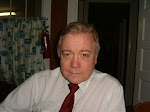Wednesday, April 30, 2008
Whatever It Takes To Get People to Jesus
Deuteronomy 22:1-22; Mark 2:1-12 / Psalm 40:1-17
I. Crowds Gathered To Hear Jesus
A. Jesus made waves; heaven disturbs the common order of life. “And again he entered into Capernaum after some days; and it was noised that he was in the house.” (Mark 2:1)
B. As the crowds grew, Jesus preached to them. “And straightway many were gathered together, insomuch that there was no room to receive them, no, not so much as about the door: and he preached the word unto them.” (Mark 2:2)
C. If leprosy could be healed, perhaps other problems could be as well; four people trusted that God would heal another crippled person. “And they come unto him, bringing one sick of the palsy, which was borne of four.” (Mark 2:3)
1. People who turn to the Lord will find opportunities for blessings. “Blessed is the man that heareth me, watching daily at my gates, waiting at the posts of my doors.” (Proverbs 8:34)
2. Forgiveness and healing are closely united in God. “Who forgiveth all thine iniquities; who healeth all thy diseases;” (Psalm 103:3)
D. The believers would not stop till they got their companion to Jesus. “And when they could not come nigh unto him for the press, they uncovered the roof where he was: and when they had broken it up, they let down the bed wherein the sick of the palsy lay.” (Mark 2:4) “But if from thence thou shalt seek the LORD thy God, thou shalt find him, if thou seek him with all thy heart and with all thy soul.” (Deuteronomy 4:29)
E. Jesus spoke to the heart of the problem. “When Jesus saw their faith, he said unto the sick of the palsy, Son, thy sins be forgiven thee.” (Mark 2:5)
II. Religious and Cultural Leaders Objected
A. People who benefit from the established order have trouble dealing with disruption. “But there were certain of the scribes sitting there, and reasoning in their hearts,” (Mark 2:6)
B. Presuppositions kept people from considering the truth. “Why doth this man thus speak blasphemies? who can forgive sins but God only?” (Mark 2:7)
III. Jesus Exposed the Problem
A. Jesus understands everything. “And immediately when Jesus perceived in his spirit that they so reasoned within themselves, he said unto them, Why reason ye these things in your hearts?” (Mark 2:8)
B. The real issue was the person and work of Christ; He Who can do the greater can certainly do the lesser. “Whether is it easier to say to the sick of the palsy, Thy sins be forgiven thee; or to say, Arise, and take up thy bed, and walk?” (Mark 2:9)
C. Jesus was making a deliberate statement to prove a point. “But that ye may know that the Son of man hath power on earth to forgive sins, (he saith to the sick of the palsy,)” (Mark 2:10)
1. The forgiveness of sins is God’s prerogative alone; Jesus was announcing His divinity. “I, even I, am he that blotteth out thy transgressions for mine own sake, and will not remember thy sins.” (Isaiah 43:25)
2. Jesus understood all the players on the Capernaum stage and their most hidden motivations. “And thou, Solomon my son, know thou the God of thy father, and serve him with a perfect heart and with a willing mind: for the LORD searcheth all hearts, and understandeth all the imaginations of the thoughts: if thou seek him, he will be found of thee; but if thou forsake him, he will cast thee off for ever.” (1 Chronicles 28:9)
D. Christ demands that changed hearts demonstrate themselves in changed lives of new obedience. “I say unto thee, Arise, and take up thy bed, and go thy way into thine house.” (Mark 2:11)
E. Changed lives glorify God and that is the purpose for life; the paralytic displayed Jesus’ authority and immediately began to enjoy what God had done for him. “And immediately he arose, took up the bed, and went forth before them all; insomuch that they were all amazed, and glorified God, saying, We never saw it on this fashion.” (Mark 2:12)
The great Physician now is near,
The sympathizing Jesus;
He speaks the drooping heart to cheer,
Oh! hear the voice of Jesus.
[from The Great Physician by William Hunter]




